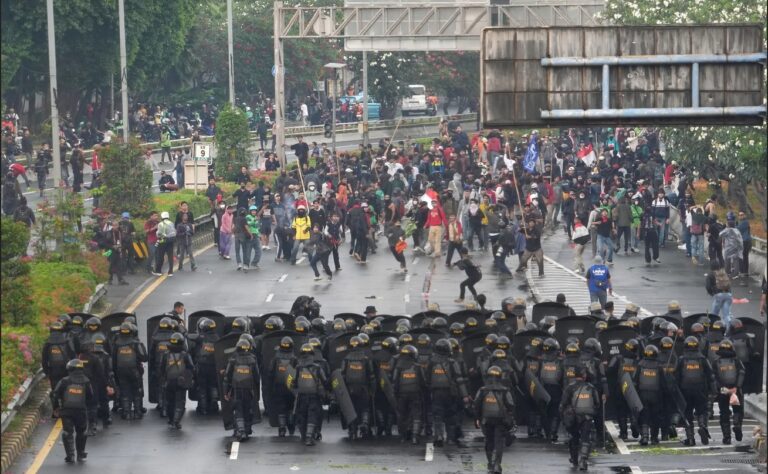There’s a lot of exposure about this beautiful island paradise and its tourism industry, as well as property and uncontrolled developments. There are a lot of critiques and arguments determined to stop hotel and villa developments in certain areas. Some would even argue there’s a price war going on between hotels and resorts.
One thing we would all agree on is that these issues need to be addressed properly, as they have all the potential to pose a threat to Bali’s future.
A Norwegian eco-warrior and writer, Arild Molstad, wrote a book that deals with tourism destroying cultures and nature. It’s called Where Do We Go Before It’s Too Late: Two Faces Of Tourism … and one of the chapters is about Bali.
Molstad concludes with the fact that Bali is sustaining its culture much better than most other places. Interestingly enough what attracted the first tourists to Bali was the unique culture and people, not the ‘great’ hedonistic lifestyle.
We’ve got to try and keep what is so unique about this magical island. But how?
Well, we could start by realizing that Balinese and Indonesian culture is indeed a melting-pot of many; Indian, Chinese, Arab, and European. And it’s been evolving and integrating for generations. I remember being shown an article some time ago dealing with these issues written in the 1930s! So, it’s not exactly a new topic.
Everyone involved in Bali; people who live here and people who visit has an opinion on the threats and dangers, but no one seems to have a solution; all actions and reactions are based on protection and a rather subjective view of these issues.
Let’s look at some interesting facts and historical aspects. Some of these may not be to everyone’s liking, but it’s all meant to highlight issues for a better future for us all.
Land, Developments and Investments
Land is being bought up at high speed for developments and investments. The Balinese complain that soon they may not have any land of their own and their ancestors (leluhur) are upset. It’s no secret, however, that some Balinese do gain tremendously on current land speculations too. Swings and roundabouts.
But hold on, what Balinese are we talking about? The truth is the mainstream Balinese came from Java and what was left of the Majapahit Kingdom. This was 300 to 350 years ago. So, how did they obtain the land from the Balinese that were here at that time; the Bali Aga? Simple. It was by way of force and they drove the Bali Aga into the mountains.
Some will argue this was a long time ago and it has no relevance, but it happened not long after Captain Cook discovered Australia. At least the takeover had some financial gain attached to it, at least for the short term. The Bali Aga were also originally tribes out of Taiwan, so are they really Balinese?
What about the Bule Aga (these are expats who have been here for 20 to 40 years) complaining that this must stop, and that we should reduce the number of expats aiming to move to Bali?
I suggest that those who have been here the longest should leave and give their spot to others, as there is no monopoly on a place and it is simply not fair to not allow others to experience what they have. The fact is that all these changes have happened through history many times, the only difference is now it’s happening a lot faster.
Here’s the rub … the economy of Bali is driven by tourism and property development. 82% of it in fact.
The average economic growth is less than most other Indonesian provinces. There is no industry or natural resources to dig into. So, how can anyone even suggest a stop on developments and tourism?
Balinese culture is in many views attached to farming and a deeply rooted way of life called Tri Hita Karana. This should be preserved, but does it mean that Wayan and Made for their entire lives have to work the rice fields in the traditional way, and not be allowed to work themselves out of a life that might not be the easiest? Does it mean that the Balinese culture cannot evolve and change?
Even Parisada (the Balinese Religious Board) discusses these issues quiet openly now. And it’s healthy to do so.
Visitors and Tourism
Some people say market growth has slowed down. But the numbers tell a different story. In 2016 foreign tourist arrivals to Bali grew to just under 5 million, an impressive 22.5% growth from 2015. Domestic arrivals grew a similar amount, possibly more as accurate numbers aren’t so easy to find for some reason.
If you take this combined foreign and domestic growth and imagine all of these people stayed in double rooms, with an average stay of about three nights, then divide the number of rooms needed per night by hotels with an average of say 200-250 rooms, you come to the realisation that Bali needs a lot more hotels, villas and accommodation options every year just to keep up with the growth!
What about the price war?
What price war?
Well, any serious international and domestic consultancy groups state that the average occupancy and room rate as well as average spending is at the same level, and in many cases it’s going up.
If someone builds a low-end hotel, with a terrible location, no concept, no management, no structure to it, what else does they have to compete with but price? This is what happens; the low end cannot keep up with the market, and I would argue this is good for the market and Bali’s future.
How can a moratorium on hotels be executed? What if Wayan has a hotel built on tourism zoned land, and is doing well, and Made next door wants to do the same but he is not allowed to? How can this be?
In 2015, several ASEAN and SEA treaties with free flow of capital and labour kicked in, so the only way that Bali and the Balinese, including expats living here, can keep up with everything is to provide the best possible service at the best possible price, which is again, good for Bali.
A protective mindset is not possible in these days of globalization.
Some people say it’s all to do with a corrupt government. This was partly true in the past, but it’s also to do with a corrupt market with investors, domestic and expat alike not wanting to follow regulations, pay taxes or think long-term for the benefit of the people in whose land they live and do business.
I’d say the government of Bali and Indonesia is changing a lot faster than the market, and that is good for Bali.
What are the solutions?
First of all, what should be priorities? It’s simple – government, infrastructure and garbage. These should be the main focuses of our attention. Then all of us need to come together with solutions, not just criticisms.
We need long term solutions. We need to realize that what has started cannot be stopped. We can decide where we take the Balinese tourism market. We need to focus on words like ‘eco’, ‘upmarket and integrated tourism’, ‘better zoning’, ‘real planning’ and so on.
Everyone doing villas, resorts, restaurants, shops, whatever it is; we all gain from it, and it’s our responsibility to drive this in the right direction.
I personally think Bali will find its way, and will still be that unique place that touches us all so deeply in many different ways.
Are you ready to step up to the plate?





